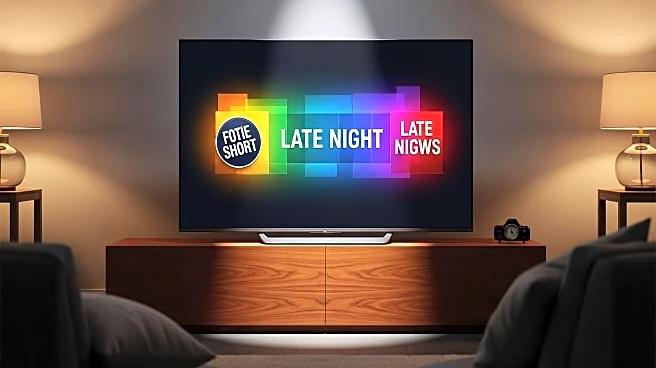What is the story about?
What's Happening?
Sinclair Broadcast Group, a major local TV owner, has decided to resume airing 'Jimmy Kimmel Live!' after a brief boycott. The boycott was initiated following remarks made by Jimmy Kimmel about the man accused of assassinating Charlie Kirk, which led to controversy and backlash from conservative circles. Sinclair, along with Nexstar, had pre-empted the show since its return, blacking out the program for millions of viewers. The decision to end the boycott came after negotiations with ABC, the show's parent network. Sinclair emphasized its commitment to providing programming that serves community interests while fulfilling obligations to air national network content.
Why It's Important?
The resumption of 'Jimmy Kimmel Live!' by Sinclair highlights the ongoing tensions between media companies and political discourse in the U.S. The boycott and subsequent negotiations underscore the challenges broadcasters face in balancing community standards with national programming obligations. This development is significant as it touches on issues of free speech and the influence of political pressures on media content. The resolution of this boycott may set a precedent for how media companies handle similar controversies in the future, impacting the landscape of television broadcasting and public discourse.
What's Next?
With the boycott lifted, 'Jimmy Kimmel Live!' will continue to air on Sinclair's local stations, potentially restoring viewership numbers affected by the blackout. The situation may prompt further discussions on the role of broadcasters in moderating content and the impact of political pressures on programming decisions. Stakeholders, including media companies and political figures, may continue to debate the implications of this incident on free speech and media responsibility.
Beyond the Headlines
The incident raises broader questions about the intersection of media, politics, and free speech in the U.S. It highlights the delicate balance broadcasters must maintain between community standards and national programming. The resolution of this boycott may influence future media strategies and the handling of politically sensitive content, potentially affecting public trust in media institutions.















